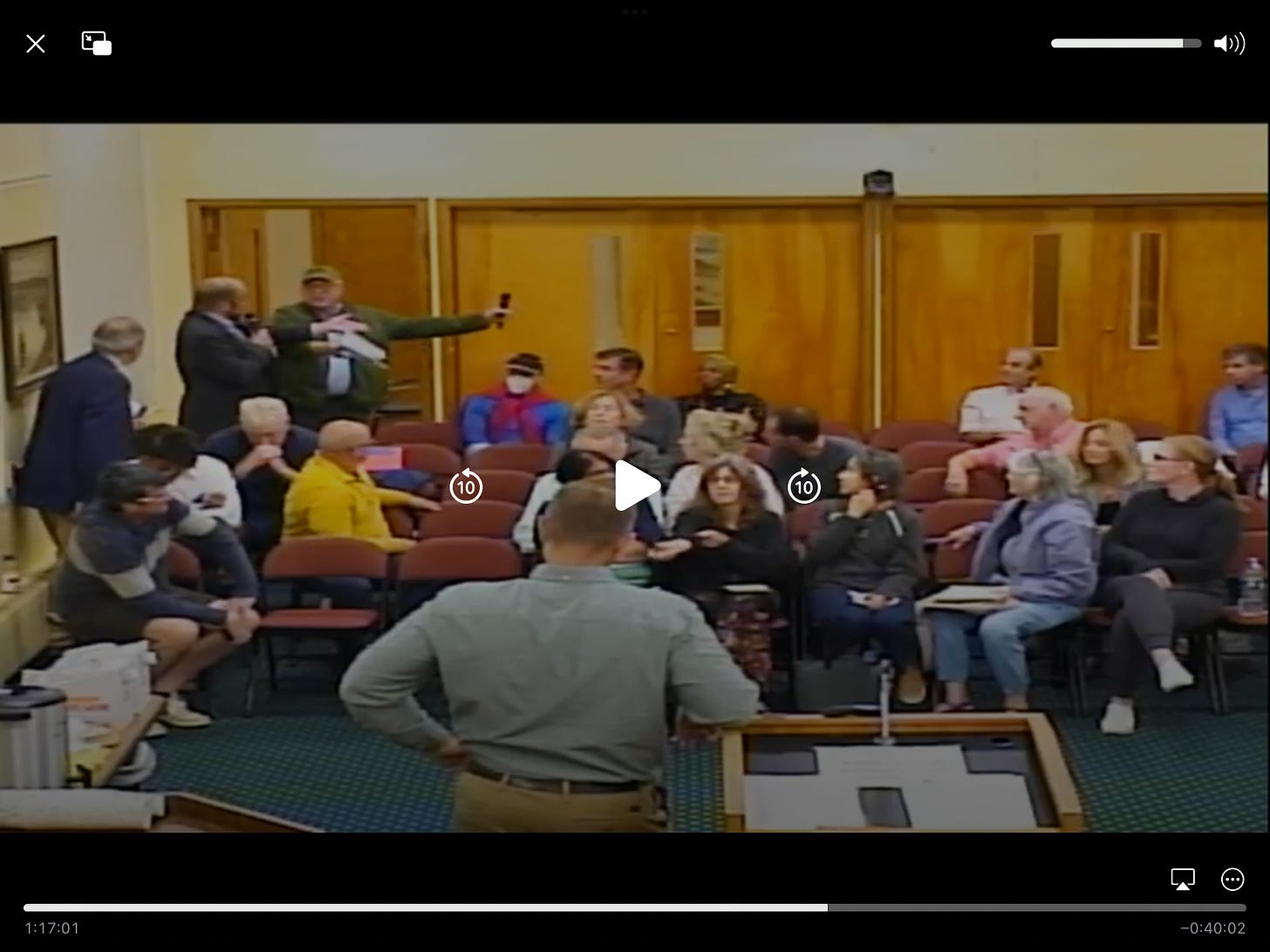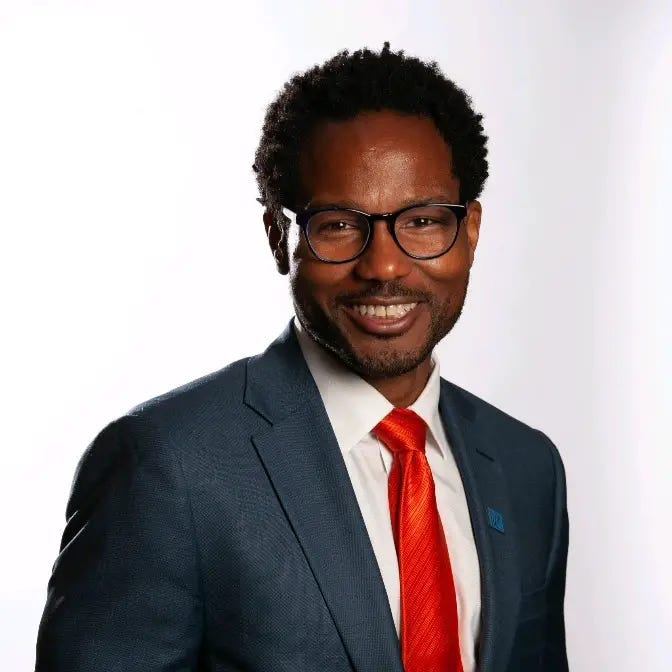Chronicle Editorial: Democracy is messy; letting citizens speak is a key part of it.[Updated with link to video of meeting]
Many attendees and online viewers of an "information session" on housing Monday evening were shocked to see Mayor Brian Pugh try to take a microphone away from a Croton resident while he was speaking.
Anyone who has attended a public meeting in Croton, whether it is part of the business of the Village of Croton-on-Hudson or the Croton-Harmon school district, knows that Ed Riely of Truesdale Drive will be there—and that Ed Riely of Truesdale Drive will speak during the public comments segment of the meeting.
Some will agree with what Riely has to say, and some will not. That’s because his remarks are often critical of current public officials and their policies.
Criticizing public officials and questioning their behavior is a cornerstone of democracy, as is taking “unpopular” views. The village of Croton, for its part, recognizes this basic democratic principle with the copy of Norman Rockwell’s famous painting “Freedom of Speech” that hangs behind the dais of the Georgianna Grant meeting room.
Thus we, and many others we have spoken with, were shocked to see the mayor of Croton, Brian Pugh, attempt to take a microphone away from Ed Riely while he was speaking, after both Pugh and a guest speaker had made presentations during a village sponsored event entitled “Shaping Tomorrow: Housing Trends in Croton-on-Hudson and the Hudson Valley.”
While we are awaiting the posting of the recorded video of the event (we have reminded village officials of their legal obligation to preserve the video and post it in unedited form), we can state the basic facts of what happened. After the speaker had finished his presentation, Riely, who was seated in the back of the meeting room, stood up and began to make some comments of his own, including about the role of taxes in housing decisions. A participant sitting across the room began to yell at him with the clear intent of shutting Riely up, at which point Riely raised his voice in an attempt to continue speaking.
[Update: The video is now posted on the village Web site. The pertinent segment begins about about the 1:10 mark. Note that Mayor Pugh began trying to respond to Riely’s remarks, which had been directed at Adam Bosch; Riely protested strongly that Bosch was not being allowed to respond himself.]
At that juncture, Mayor Pugh walked quickly to where Riely was standing and tried to take the microphone away from him. Riely stretched out his left arm with the microphone, putting it as far as possible from Pugh, and refused to relinquish it. At that point Pugh told Riely he would have to leave the meeting, and that in fact he was going to leave the meeting; Riely disagreed, and in fact did not leave and was not ejected in the end.
We would have to review the video to see if Mayor Pugh actually made physical contact with Riely, and others can share their own observations in the Comments section below. (We welcome the mayor’s comments as well, especially if he disagrees with this description of what happened.)
The incident is reminiscent of another recent episode, this time at a Planning Board meeting, where the chair threatened to have some vocal participants ejected and even arrested.
After the altercation between Mayor Pugh and Ed Riely, Pugh and deputy mayor Len Simon, who was also present, adjourned the meeting for about 10 minutes, announcing that when it reconvened Bosch would respond to questions written by villagers on note cards rather than to spoken queries. (To Bosch’s credit he did not entirely follow this procedure, and one or two residents were allowed to speak, one at some length.)
It would not matter whether those objecting publicly to proposed housing projects in the village were a tiny minority or not; basic democratic principles say they should be allowed to speak. But in fact, Riely and others who have been vocal at recent meetings appear to represent a large and significant segment of the Croton community. One sign of this is that a total of about 1400 individuals have signed a petition against alleged “urbanization” of the village, including 999 online as of this writing and another 400 or so on printed versions of the petition.
Pro-housing advocates in Croton have often tried to portray residents opposed to the building of large housing projects—such as the 100 condo units proposed for Lot A and the 280 units proposed for 1 Half Moon Bay Drive (the village has now put a pause on the application for that project)—as NIMBYs and even racists. Perhaps that accusation is true in a few cases, but we do not believe it characterizes the attitudes of the majority of villagers concerned about development issues, nor of the organizers of the current movement against what many see as overdevelopment.
Rather, the real debate is over how much housing we should build, and how we should go about it. On that topic, the choice of speaker for Monday evening’s presentation was of interest. Adam Bosch is, as described in the village’s announcement of the event, “President & CEO of Pattern for Progress, the region’s leading nonprofit dedicated to driving sustainable growth through innovative policy, planning, and research.”
We have been aware of Hudson Valley Pattern for Progress (the full name of the group) for a number of months now, because the organization has conducted a great number of studies about housing issues, many of which may be well done, data-driven, and valid in their own terms.
However, the organization’s claims to be an independent think tank are probably not valid. A look at the group’s boards of directors indicates that it is heavily dominated by representatives from banking, finance, construction, industry, and other business groups whose bottom lines could reasonably be assumed to benefit from an accelerated building of housing in the Hudson Valley—especially housing that is government subsidized, and where profits are pretty much locked in.
In that context, it was of interest that among the speakers at the September 18 public hearing on the Lot A project were two individuals probably unknown to most Crotonites: Jason Hilliard, Director of Government Affairs for the Building & Realty Institute (BRI) of Westchester and the Mid-Hudson Region, and Khush Kam-Au, the campaign organizer for Welcome Home Westchester, a project initiated by the BRI. Both of them spoke in favor of the Lot A condominium project proposed by WBP Development LLC.
Shortly after that meeting, we contacted Hilliard to ask how he found out about the public hearing. We quote his response in full:
“Wilder Balter Partners are long-standing members of the BRI. Although we did not discuss the specifics of this hearing or this project with them, we can vouch for the high quality of their work throughout the county, as well as their important contributions to housing affordability. We learned about the meeting from our affiliation with the Welcome Home Westchester campaign. Based on past reports of various public meetings in Croton-on-Hudson, we knew the topics of school population and economic benefits have been coming up in relation to the modest increases in housing elsewhere in the village, and we knew we could contribute some empirical research to the conversation.”
Of course, in a democracy, anyone has the right to speak in favor of this or any other housing project, whether they live in Croton or not. But we should not be naive. The debate in Croton over housing policy is being closely watched by business, industry, and real estate interests, all of whom stand to gain from a certain approach to solving the housing crisis—which we believe is real and not imagined—that involves relying on the private sector making enough profit to agree to build the housing we obviously need.
The invitation by the village to Pattern for Progress CEO Adam Bosch to come speak to us at a village-sponsored “information session” is, in this context and in our view, a political and ideological decision and not a neutral or objective act designed merely to provide us with the “facts” about the housing crisis. It would be interesting if the village would also invite representatives of Shelterforce, NYU’s Urban Lab, or other groups that do not represent industry.
We will soon publish a story about this dominant business model for “solving” the housing crisis and whether it is the best one for the public good. In the meantime, we do find it interesting that village officials, the Croton Housing Network, and of course New York governor Kathy Hochul, have come to favor this approach, in which the private sector is basically bribed with tax exemptions and other inducements to serve the public good.
Many Croton residents, whatever their political views, have come to question who is benefitting most from these inducements, the public or private enterprise.
Meanwhile, we await the posting of the video of last night’s meeting, a case study in anti-democratic conduct by public officials.
Update: We are informed by Village Manager Bryan Healy that the village does not edit videos and that any “insinuation that we would do so is insulting.”
********************************************************************************************************
To share this post, or to share The Croton Chronicle, please click on these links.
Comments policy: No personal attacks, please be polite and respectful.








There has already been an attempt to censor distribution of this post by one or more individuals who reported it to Facebook after I posted it on Uncensored and a couple of other village groups. I have appealed Facebook’s decision; such decisions are often very arbitrary and allow people to engage in censorship by simply filing a report. Please distribute this post as widely as possible to counter that.
Thanks Michael, this “information” session as it a presented is in the interest of NY State and Federal mandates. The business model favors big developers and tax incentives to a quick, big not well thought out fix. As a resident who would like to qualify for the ADU loan, I’m out of luck because in order to qualify, I earn too much. If I were to earn less I would not be able to pay my mortgage or property taxes at current rate. I find this “information session” disingenuous. This has already been done and we are being told how it will go.